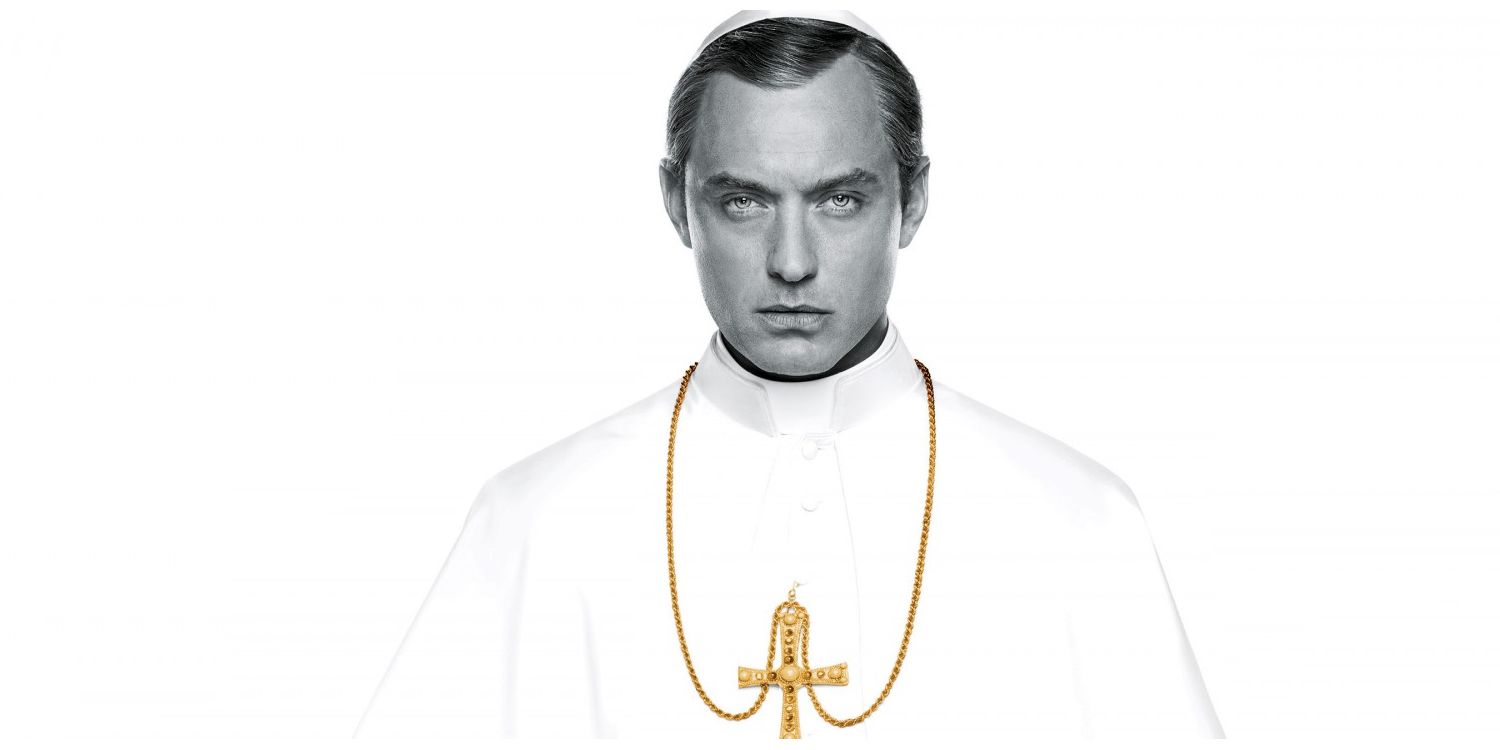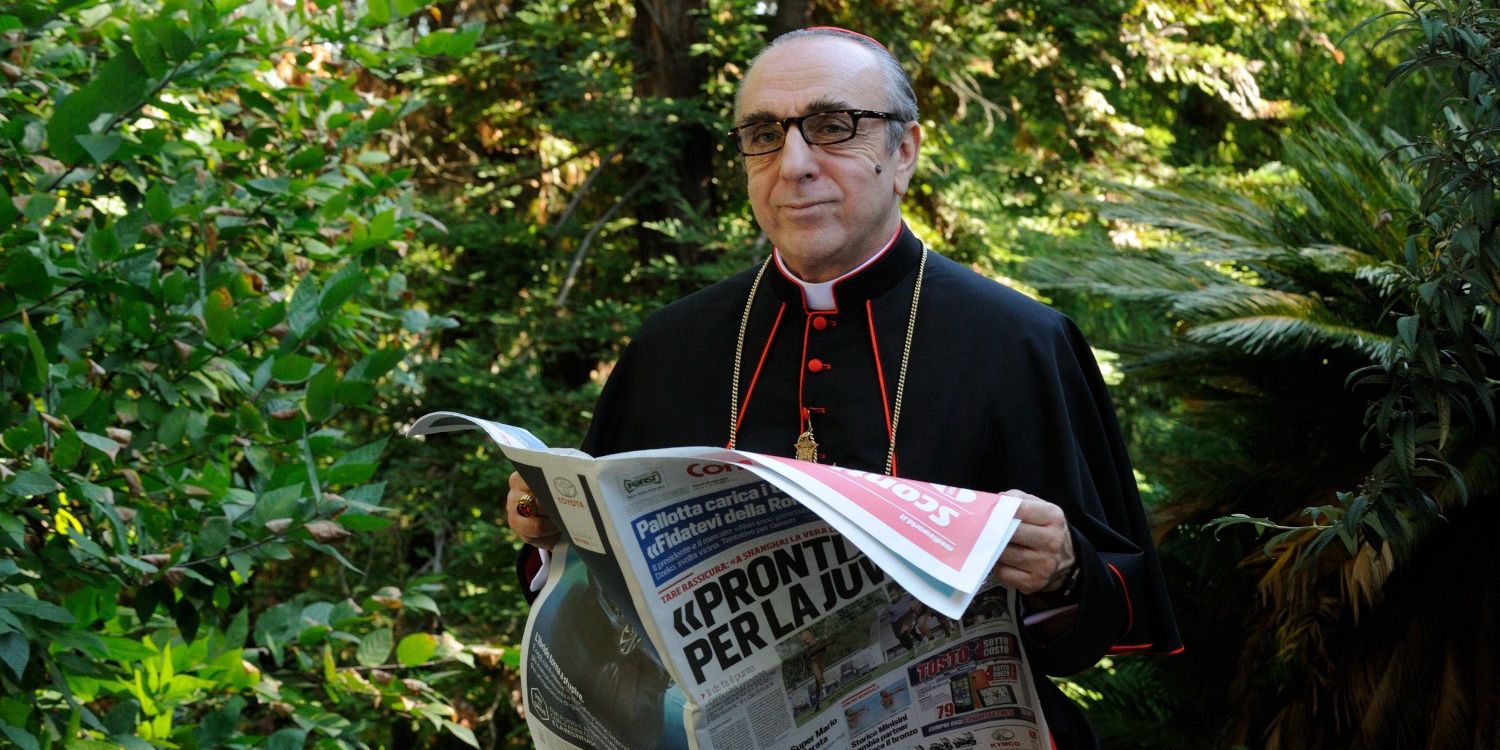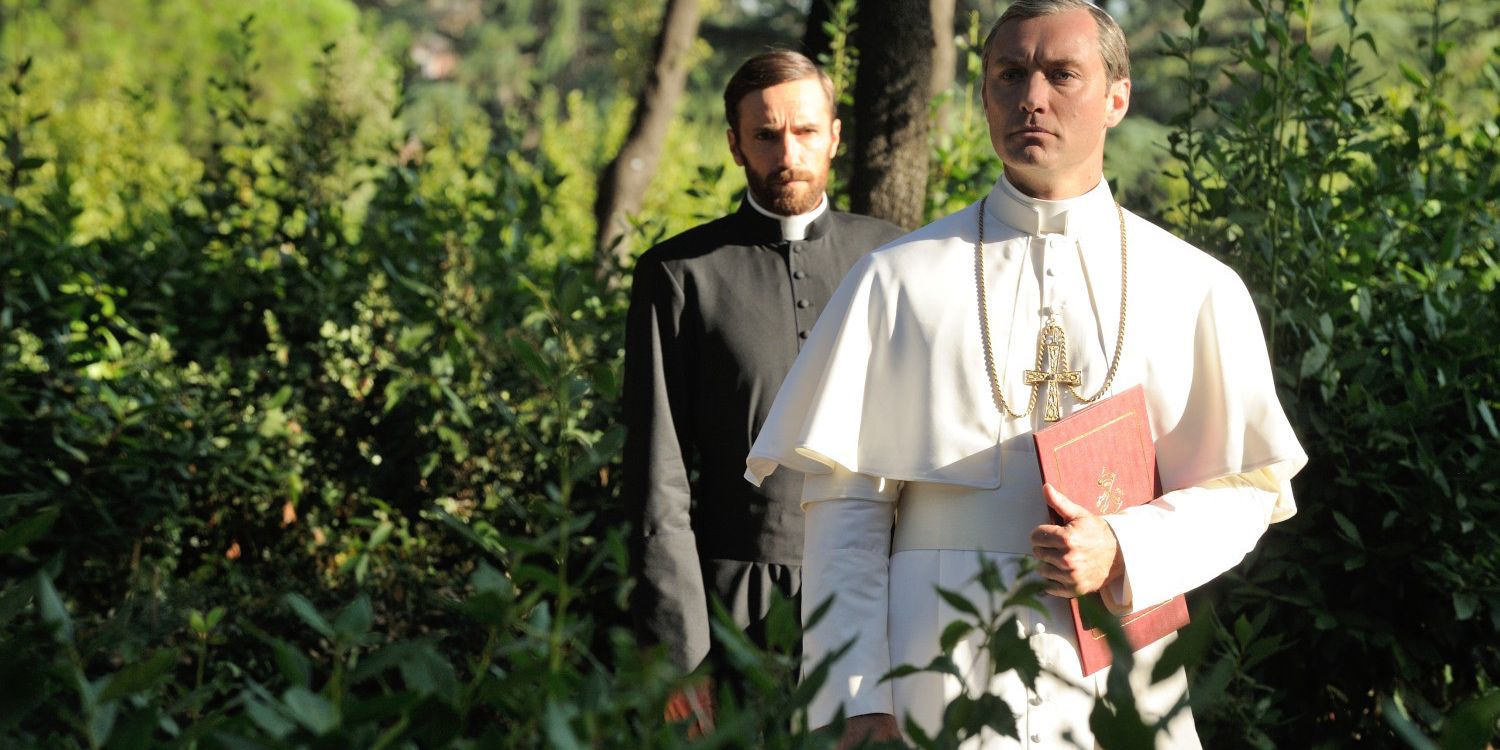With a title like The Young Pope, which inspired countless memes and jokes across social media in recent weeks, the expectation seemed that the series was a self-serious peek inside a gargantuan, centuries-old institution, complete with yet another middle-aged antihero at its center. Given the relatively vague marketing done on the show's behalf prior to its North American premiere, such assumptions may have been understandable. But as is demonstrated by the first hour, and is exhibited in greater depth and detail during subsequent episodes, creator Paolo Sorrentino has delivered a visually sumptuous new series that, like its central character, defies expectations, and deftly, unpredictably vacillates among the possibilities brought by a mix of prescient social commentary, serious television drama, and dreamlike satire.
In considering the series' reverential humor and its focus on the clash of old and new mentalities and sensibilities in the face of a bewildering regime change, it's a wonder Sorrentino didn't call it The New Pope, aligning his narrative with the uproar over revisions to another well-known institution's formula – establishing a through-line with Jude Law's Lenny Belardo, the first American Pope in history, and his aspartame-tinged breakfast of choice. But The Young Pope doesn't lack for such allusions, nor is it particularly interested in throwing specific barbs at the Catholic Church. Like Belardo, who takes the name Pope Pius XIII, the series contains multitudes, and rather than act as a top-down deconstruction of its subject, The Young Pope is instead an insightful and often-funny examination of the contradictions in its main character and his faith.
Sorrentino drops viewers into the story just as Lenny begins his reign, leaving his election by the College of Cardinals as mysterious to those watching as it is to everyone else, including Lenny. Sidestepping the bureaucracy of the church and the methodology of settling someone into the papacy, the series quickly focuses on the ripple effect of appointing a relative unknown commodity like Lenny, and how that ripple becomes a wave and soon a tsunami, crashing down not only on the Cardinals who appointed him, but the entirety of the church itself. The speed with which the series gets to the matter at hand – evinced most convincingly through a stunning sequence that opens episode 3 – is evidence of Sorrentino's thoughtful approach to the idea of transformation and transition in an otherwise unbending institution.
As it turns out, Lenny's ascent to the papacy was due in large part to the machinations of the Vatican Secretary of State, Cardinal Voiello (Silvio Orlando), who envisioned the young American as a bridge between an encroaching sense of progressivism and the church's seemingly inflexible fundamentalism. The appointment of Pius XIII was a gambit by Voiello and others, who saw Lenny's onetime mentor, Cardinal Spencer (James Cromwell) as too conservative, despite the belief he was a shoo-in for the position. But as the Cardinals soon learn, this Pope's ideas are not new, at one point inspiring one of his Cardinals to espouse the opinion that for such a (relatively) young man, his ideas are very old.
Those ideas are, in essence, the show's efforts to consider the confoundingly uncomplicated nature of its protagonist, despite expressing what initially seemed to be an inscrutable temperament. As it turns out, Lenny describes himself as intransigent, irritable, and vindictive, a man with little tolerance for those who would scheme against him (or merely scheme without him) and for whom the word of God is absolute. He's a hardline conservative whose ideas are in conflict with those around him, and yet he, too, seems conflicted at times. The Young Pope, and by extension Jude Law, presents Lenny not as yet another difficult man headlining a prestige drama but a wrench in the works of a great machine feeling its way into the future. As such, Pius XIII upends recent changes in long-held attitudes demonstrating such reversals within massive institutions are neither easy nor permanent. Meanwhile, the show's irreverent, oftentimes humorous outlook feels confoundingly independent from the conventions of the medium.
At times, though, the inscrutability of The Young Pope flirts dangerously with bringing the whole thing crashing down. Sorrentino's lavish arrangements and art house flair help maintain interest, as does the speed at which the narrative moves, though there are times when the unknowable nature of the Pope and his "always keep them guessing" ethos maintains a similarly detached stance with those watching. Lenny confounds everyone around him, even his closest advisor Sister Mary (Diane Keaton), a character one might think would offer up some insight into the character and yet does (unsurprisingly) the opposite. There's evidence to suggest this, too, is intentional, as the series occasionally ventures into the surreal as a way of indicating the failures of communication – or at least the transmission of ideas – emphasizing the poor reception of a bedside radio, and later when Lenny seemingly communicates with a wild animal through sheer force of will (or just blind dumb luck).
For now, anyway, Lenny's inscrutability is part and parcel to the show's success, producing a fascinating if unknowable main character at the head of an equally fascinating new series. As stunning as it is irreverent, The Young Pope is many things – not the least of which is proof you shouldn't judge a show by its pre-release memes.
-
The Young Pope continues next Sunday @9pm on HBO.



